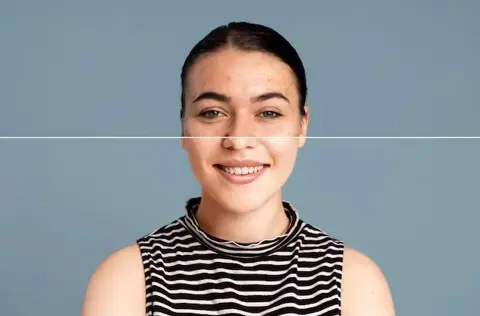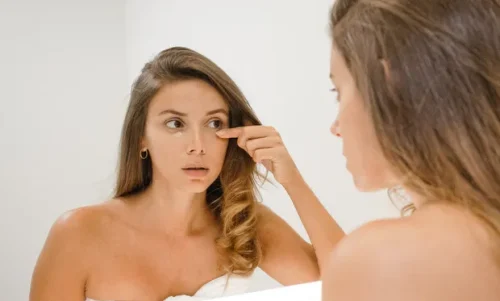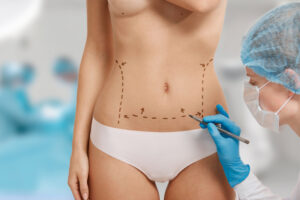What is the Dark Spot?
Dark spots, also known as hyperpigmentation, are areas of skin that appear darker than the surrounding skin. These spots are caused by an overproduction of melanin, which is the pigment that gives skin its color.
 4.7
4.7
Would you like to receive information about the operations from Vanity Doctors?
As Vanity, we can give you information about the operation you are considering.
Ask the DoctorHyperpigmentation can be caused by a variety of factors, including sun damage, hormonal changes, skin injuries, and certain medications. Common types of dark spots include age spots, melasma, and post-inflammatory hyperpigmentation.

While dark spots are not harmful, they can be a cosmetic concern for many people. There are several treatments for dark spots on the face available to help reduce the appearance of dark spots, including topical treatments, chemical peels, and laser therapy. However, it’s important to talk to a dermatologist or skin care professional to determine the best course of treatment for your specific skin type and condition.
What Is The Most Effective Spot Remover?
Dark spots, also known as hyperpigmentation, are a common skin concern for many people. Whether it’s spot removal, dark spots removal, dark spots on face removal or pimple removal, there are many products and treatments available to help reduce the appearance of these blemishes. The best spot remover for you may depend on the type of spot you are trying to remove dark spots on face, as well as your skin type and sensitivity. Here are a few options:
Hydroquinone:
Hydroquinone is a skin-bleaching agent that can be used to lighten dark spots, age spots, and other types of hyperpigmentation. It works by inhibiting the production of melanin, the pigment that gives skin its color. Hydroquinone can be found in many over-the-counter spot treatments, as well as in prescription-strength formulations.
Retinoids:
Retinoids, which are derived from vitamin A, can help to speed up skin cell turnover and promote the growth of new, healthy skin cells. This can help to fade dark spots and improve skin texture. Retinoids can be found in many over-the-counter creams and serums, as well as in prescription-strength formulations.
Vitamin C:
Vitamin C is a powerful antioxidant that can help to protect skin from damage caused by free radicals, which can contribute to the formation of dark spots and other types of hyperpigmentation. It can also help to brighten skin and improve skin texture. Vitamin C can be found in many skincare products, including serums, creams, and spot treatments.
Chemical peels:
Chemical peels involve the use of a chemical solution to remove the outer layers of skin, revealing fresher, brighter skin underneath. Chemical peels can help to fade dark spots, as well as improve skin texture and tone. They are typically performed by a dermatologist or other skincare professional.
Can Skin Spots Be Removed?
Skin spots can be removed through a variety of methods depending on the type of spot, its location, and other factors. Here are some common types of skin spots and how they can be treated:
Age spots removal: Age spots, also known as liver spots, are typically caused by sun damage and appear as flat, brown spots on the skin. They can be removed with treatments such as cryotherapy, chemical peels, or laser therapy.
Freckle removal: Freckles are small, flat spots that are usually brown or black in color and are often caused by sun exposure. While they are not harmful, they can be removed with laser therapy or chemical peels.

Moles: Moles are typically brown or black in color and can be raised or flat. While most moles are harmless, some may need to be removed if they change in size, shape, or color, or if they become irritated or itchy. Moles can be removed with surgical excision, laser therapy, or cryotherapy.
Birthmarks: Birthmarks are colored spots that appear on the skin at birth or shortly thereafter. They can be removed with laser therapy or surgical excision.
Pimple Marks: Pimple marks are dark spots or discoloration on the skin left behind after a pimple has healed. They can be removed using topical treatments such as retinoids, alpha-hydroxy acids, or vitamin C, which promote skin cell turnover and reduce discoloration. Other pimple marks removal options include chemical peels, microdermabrasion, laser therapy, and microneedling, which can help to improve the appearance of acne scars.
How Do You Get Rid of Dark Spots?
And What Removes Dark Spots Fast?
There are several ways to get rid of dark spots on the skin, also known as hyperpigmentation. But it’s important to note that results may vary depending on the individual and the severity of the dark spots. Here are some effective pigmentation treatments:
Topical treatments: There are many topical treatments available over-the-counter or with a prescription from a dermatologist that can help to fade dark spots. Some ingredients to look for include hydroquinone, retinoids, vitamin C, kojic acid, and azelaic acid. These ingredients work by inhibiting the production of melanin, the pigment that gives skin its color, and promoting the growth of new, healthy skin cells.
Chemical peels: Chemical peels involve the application of a chemical solution to the skin to remove the outer layers of dead skin cells, revealing fresher, brighter skin underneath. Chemical peels can help to fade dark spots, as well as improve skin texture and tone.
Microdermabrasion: Microdermabrasion is a non-invasive treatment that uses a special device to gently exfoliate the skin and remove dead skin cells. This can help to dark spot treatment and improve skin texture.
Laser therapy: Laser therapy involves the use of a focused beam of light to target and destroy melanin-producing cells in the skin. Laser therapy can be very effective for treating dark spots, but it is typically more expensive than other treatments and may require several sessions.
It is important to note that some spot removers may be too harsh for certain skin types, so it is always a good idea to consult with a dermatologist or other skincare professional before starting any new treatment. For that reason we welcome everyone who wants to receive reliable service from our expert staff to our center in Istanbul, in Turkey.





